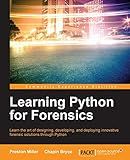Best JSON Parsers in Groovy to Buy in March 2026
To get the JSON values from the response in Groovy, you can first parse the JSON response using libraries like JsonSlurper. Once you have parsed the response, you can access the values by using the relevant keys. For example, you can access the value of a key named "name" in the JSON response by using dot notation like jsonObject.name. Make sure to handle any exceptions that may occur during parsing or accessing the values.
What is the process for iterating through JSON values in Groovy?
To iterate through JSON values in Groovy, you can use the JsonSlurper class, which is a part of the Groovy standard library. Here is a step-by-step process for iterating through JSON values in Groovy:
- Import the necessary classes:
import groovy.json.JsonSlurper
- Create a new instance of the JsonSlurper class:
def jsonSlurper = new JsonSlurper()
- Parse the JSON string into a Groovy object:
def json = jsonSlurper.parseText('{"key1": "value1", "key2": "value2"}')
- Iterate through the JSON values using a closure:
json.each { key, value -> println "Key: $key, Value: $value" }
In the above example, we are iterating through each key-value pair in the JSON object and printing out the key and value. You can further customize the iteration logic based on your specific requirements.
What is the fastest way to get JSON values from a response in Groovy?
One of the fastest ways to get JSON values from a response in Groovy is to use the JsonSlurper class. Here is an example of how you can use JsonSlurper to parse a JSON response and extract values:
import groovy.json.JsonSlurper
def response = '{"name": "John", "age": 30, "city": "New York"}'
def jsonSlurper = new JsonSlurper() def parsedResponse = jsonSlurper.parseText(response)
def name = parsedResponse.name def age = parsedResponse.age def city = parsedResponse.city
println "Name: $name, Age: $age, City: $city"
In this example, we first import the JsonSlurper class, then create a new instance of JsonSlurper. We parse the JSON response using parseText() method and store it in a variable. Finally, we extract the values of name, age, and city from the parsed JSON response.
This is a simple and quick way to retrieve JSON values from a response in Groovy.
How do I handle errors while retrieving JSON values in Groovy?
In Groovy, you can use try-catch blocks to handle errors while retrieving JSON values. Here is an example of how you can handle errors while retrieving JSON values:
import groovy.json.JsonSlurper
def json = '{"name": "John", "age": 30, "city": "New York"}'
try { def slurper = new JsonSlurper() def data = slurper.parseText(json)
def name = data.name
def age = data.age
def city = data.city
println "Name: $name"
println "Age: $age"
println "City: $city"
} catch(Exception e) { println "Error retrieving JSON values: ${e.message}" }
In this example, we are trying to retrieve the values of name, age, and city from a JSON String. If an error occurs during this process, the catch block will catch the exception and print out an error message. This way, you can handle errors gracefully while working with JSON values in Groovy.
How can I optimize the performance of JSON value extraction in Groovy?
There are a few techniques you can use to optimize the performance of JSON value extraction in Groovy:
- Use a JSON parser that is specifically optimized for Groovy, such as JsonSlurper. JsonSlurper is a Groovy-specific class that allows you to parse JSON data efficiently and extract values quickly. It also provides a more concise and readable syntax than other JSON parsers.
- Use the lazy parsing feature of JsonSlurper. By setting the lazy parsing option to true, you can defer the actual parsing of the JSON data until you actually need to access the values. This can significantly improve performance when working with large JSON datasets.
- Avoid unnecessary conversions between JSON and other data types. Try to work directly with JSON data structures whenever possible, rather than converting them to other formats such as maps or lists. This can help reduce the overhead associated with type conversions.
- Use indexing and caching techniques to avoid redundant lookups. If you need to extract multiple values from the same JSON data structure, consider storing the extracted values in a separate data structure for quick access. This can help avoid redundant parsing and extraction operations.
- Use Groovy's native language features, such as closures and higher-order functions, to streamline your JSON value extraction code. By leveraging these features, you can write more concise and readable code that is easier to optimize for performance.
By following these techniques, you can optimize the performance of JSON value extraction in Groovy and ensure that your code runs efficiently, even when working with large and complex JSON datasets.
How can I easily extract JSON values in Groovy?
In Groovy, you can easily extract JSON values by using the JsonSlurper class. Here's an example code snippet that demonstrates how you can extract JSON values using JsonSlurper:
// Parse JSON data def jsonText = '{"name": "John", "age": 30, "city": "New York"}' def jsonSlurper = new JsonSlurper() def jsonObject = jsonSlurper.parseText(jsonText)
// Extract values def name = jsonObject.name def age = jsonObject.age def city = jsonObject.city
// Print values println("Name: ${name}") println("Age: ${age}") println("City: ${city}")
In this example, the JSON data is parsed using JsonSlurper, and then specific values are extracted using the corresponding keys. Finally, the extracted values are printed to the console.
How can I validate JSON values in Groovy?
In Groovy, you can use the JsonSlurper class to parse a JSON string and validate its values. Here's an example of how you can validate JSON values in Groovy:
import groovy.json.JsonSlurper
def jsonText = '{"name": "John", "age": 30, "city": "New York"}' def jsonSlurper = new JsonSlurper() def jsonObj = jsonSlurper.parseText(jsonText)
if (jsonObj.name ==~ /^[A-Za-z]+$/) { println "Name is valid" } else { println "Name is not valid" }
if (jsonObj.age >= 0 && jsonObj.age <= 150) { println "Age is valid" } else { println "Age is not valid" }
if (jsonObj.city ==~ /^[A-Za-z\s]+$/) { println "City is valid" } else { println "City is not valid" }
In this example, we first create a JSON string and then parse it using the JsonSlurper class. We then validate each value in the JSON object by using regular expressions and conditionals. You can customize the validation rules based on the specific requirements of your JSON data.



